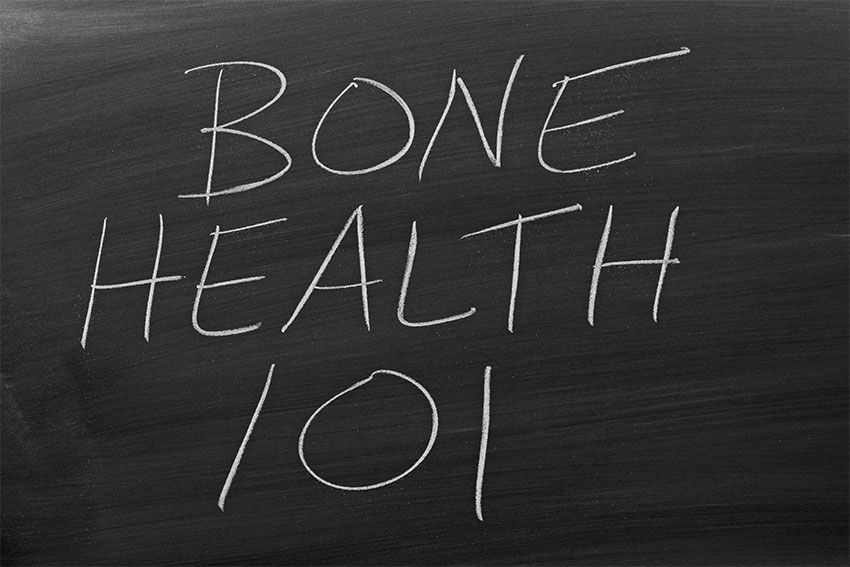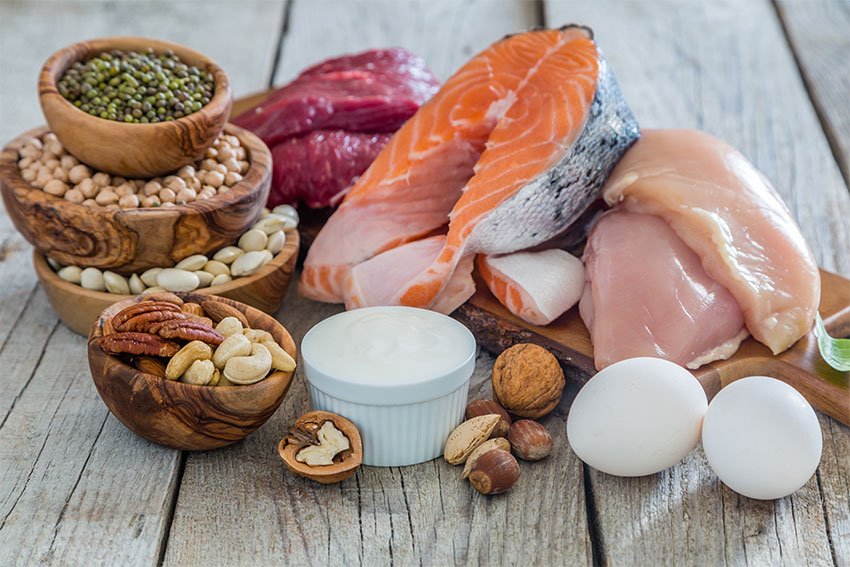Tips For Strong Bones – How Protein Plays A Part In Your Bone Health
Nutrition and bone health are intertwined, so careful consideration should be given to your diet. While calcium and vitamin D are well known contributors to bone health, there is another big player when it comes to healthy bones and that’s protein. Adequate dietary protein is essential for bone health throughout one’s life. It is needed to gain bone mass during childhood and adolescence, and is also needed to maintain bone mass with ageing.
Why is Dietary Protein Important?
Protein makes up approximately 50% of the volume of your bone, and about 33% of its mass. The bone protein matrix continually undergoes a process of remodeling. During the remodeling phase, cross-linking of collagen molecules in the bone results in modification of the amino acids, and many of the collagen fragments that are released during this process cannot be used to build new bone matrix. Therefore, an adequate supply of dietary protein is needed daily for the maintenance of your bones.
In addition to providing structural integrity to the bone matrix, protein plays a variety of other roles including increasing insulin-like growth factor-1 (IGF-1), which is a key mediator of bone health, increasing intestinal calcium absorption, suppressing parathyroid hormone, and improving muscle strength and mass. All of these factors may help to improve the health of your skeleton.
Sources of Protein
Research has found that plant versus animal proteins do not seem to differ in their ability to prevent bone loss (it should be noted that research studies in this particular area are limited). The Recommended Dietary Allowance (RDA) is 0.8 grams of protein for each kilogram of body weight. Keep in mind that this is the minimum level that you should consume to meet basic nutritional requirements. The current Dietary Guidelines for Americans suggest that between 10% and 35% of your daily calories should come from protein sources. A variety of food options provide an excellent source of protein, including both animal and vegetable sources.
Good animal sources of protein include:
- Lean cuts of red meat: grass-fed beef (top sirloin/eye of round/top round), bison
- Poultry: pasture-raised boneless, skinless chicken or turkey breast
- Fish: wild-caught Alaskan salmon, albacore or yellowfin tuna, rainbow trout
- Shellfish: shrimp, oysters, scallops
- Eggs (pasture-raised)
- Dairy: cottage cheese, Greek yogurt
Good vegetable sources of protein include:
- Lentils & Beans: kidney beans, pinto beans, black beans, Lima beans, split peas
- Soy products: tempeh, organic tofu, edamame
- Grains: quinoa, whole wheat pasta, brown rice, and oatmeal
- Nuts: unsalted raw or dry roasted varieties such as almonds, cashews, pistachios
- Seeds: sunflower, sesame, chia, flax & hemp seeds
- Spirulina
The beneficial effects of dietary protein are most prominent when there is an adequate supply of both calcium and vitamin D. To ensure that you have strong, healthy bones throughout your life, ensure that you are consuming enough calcium and dietary protein and getting enough vitamin D too.
You may also like:
How To Reduce Inflammation By Making Simple Changes To Your Diet

